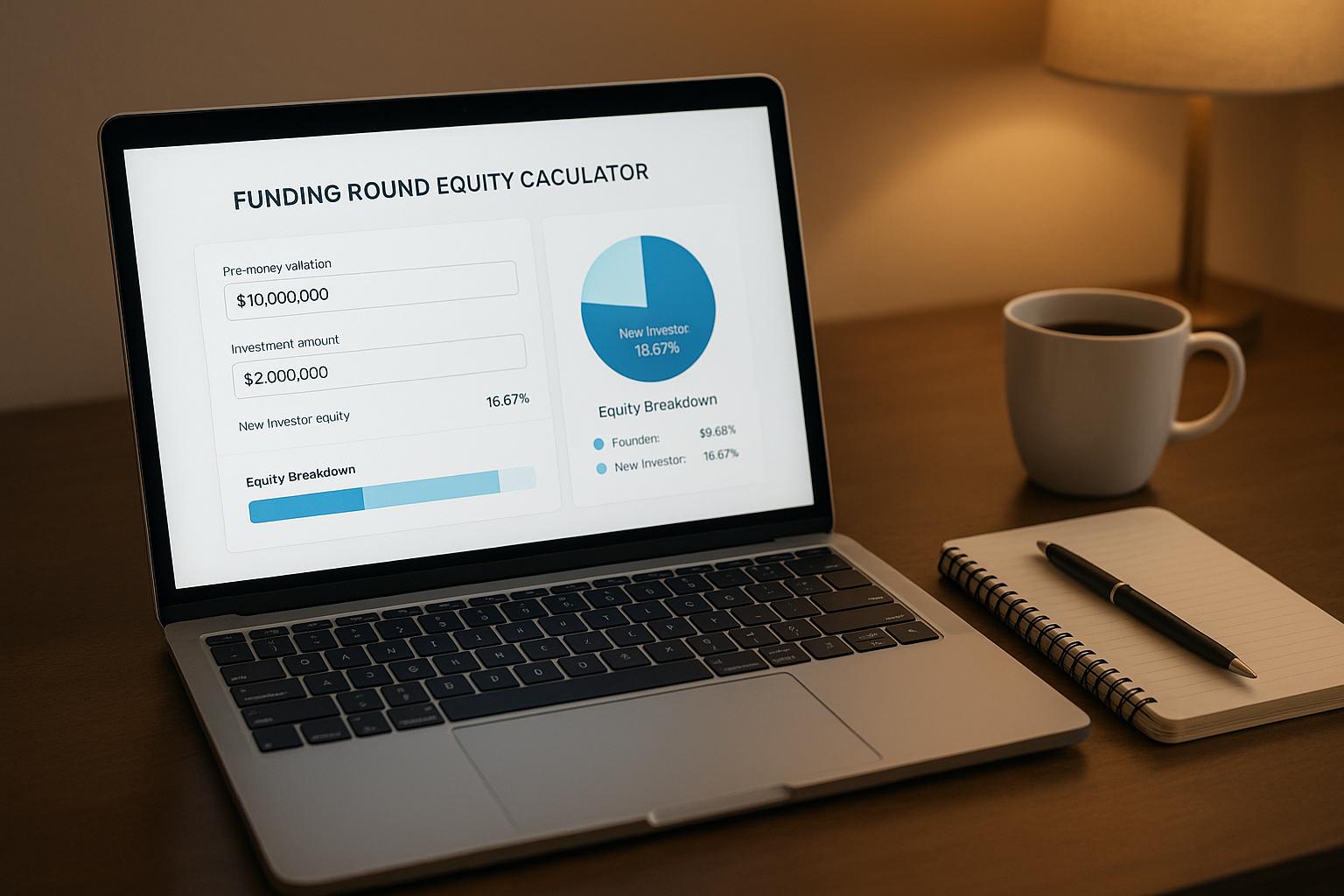Funding Round Equity Calculator

Understanding Equity Splits with a Funding Round Equity Calculator
Raising capital is a pivotal moment for any startup, but it often comes with a complex question: how much of the company do you give away? Figuring out ownership stakes after an investment doesn’t have to be a headache. With the right tools, founders can quickly grasp how a cash infusion impacts their share of the pie.
Why Equity Distribution Matters
When investors inject funds into your business, they typically receive a percentage of ownership based on the company’s valuation before and after the deal. A pre-money valuation of $3 million with a $1 million investment means a post-money value of $4 million, and the investor might claim 25% of the business. Existing stakeholders—founders and early backers—see their percentages shrink, a process known as dilution. Navigating this shift is crucial for maintaining control and aligning expectations with your team and investors.
Simplify the Process
Manually crunching these numbers can lead to errors or endless spreadsheet tinkering. That’s where a startup equity distribution tool comes in, offering clarity on diluted stakes and investor shares in just a few clicks. Whether you’re prepping for a seed round or Series A, having a reliable way to map out ownership changes empowers smarter negotiations and planning.
FAQs
What is pre-money and post-money valuation?
Pre-money valuation is what your startup is worth before receiving new investment. Post-money valuation is simply that number plus the amount of money being invested. For example, if your pre-money valuation is $2 million and you raise $500,000, your post-money valuation becomes $2.5 million. This tool does that math for you and shows how it impacts equity splits.
How does equity dilution work in a funding round?
When new investors come in, they get a slice of the company in exchange for their cash, which means existing owners’ percentages shrink. That’s dilution. Let’s say you own 50% of a company valued at $1 million pre-money, and a $250,000 investment comes in. Post-money, the company is worth $1.25 million, and the new investor might get 20%, leaving you with less than 50%. This calculator breaks it down clearly so there are no surprises.
Can this tool handle multiple founders or early investors?
Absolutely! You can input ownership percentages or share counts for multiple stakeholders, like founders and early backers. The tool will show how each person’s stake is affected after the funding round. It’s a handy way to visualize dilution across the board and ensure everyone understands the outcome.




